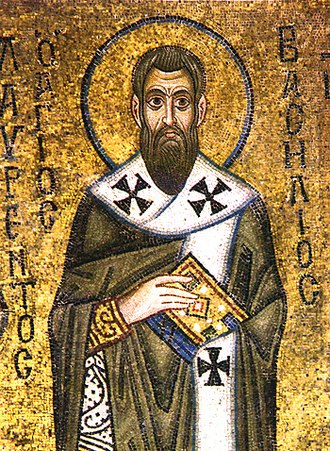Taken
from the March 9 reading from Common Prayer: A Liturgy forOrdinary Radicals1
Psalm 49:4-8Why should I be afraid in evil days:when the wickedness of those at my heels surrounds me,the wickedness of those who put their trust in their goods:and boast of their great riches?We can never ransom ourselves:or deliver to God the price of our life;for the ransom of our life is so great:that we should never have enough to pay it,in order to live for ever and ever:and never see the grave.Prayer: Forgive our greed, Lord: and free us for life together.Basil of Caesarea, a fourth-century bishop and monk, asked, “Are you not a robber, you who consider your own that which has been given you solely to distribute to others? This bread which you have set aside is the bread of the hungry; this garment you have locked away is the clothing of the naked; those shoes which you let rot are the shoes of him who is barefoot; those riches you have hoarded are the riches of the poor.”
I'm always struck by the radical discipleship of the early Church Fathers (and Mothers). So often they come across as empty names rolled out in a Christian history class and dryly mentioned in association with a particular development in Christian theology or practice. Yet most of them were devoted followers of Jesus who seriously tried to honour his life and teaching.

Take Basil here. The major talking points for his life are that he was one of the great defenders of the doctrine of the Trinity (along with his brother Gregory of Nyssa) and is one key founders of the Eastern Orthodox monastic tradition (along with his sister Macrina the Younger). All of that sounds very formal and typically religious, but then you read some of the things he wrote like the passage quoted above in Common Worship. Just try preaching that in a pulpit anywhere in Canada or the U.S. today, I dare you!
In an era when the Christian Church was rapidly developing into a broad mainstream religion, and becoming an institution wrapped up in politics and prosperity, Fathers like Basil (and other contemporaries like John Chrysostom) worked hard to keep the Church faithful to Jesus. And in doing this they left behind some hard words, that are made all the more challenging because they sound so much like Jesus or one of the Old Testament prophets.
1700 years later the church in the West is well on its way in moving in the opposite direction, from the centre of culture, power and politics to the margins. When we lived at the comfortable centre words like this were a bit too harsh for most (heck people were more likely to tolerate being told they were going to hell, than to be told what to do with their stuff).
But now, we have little to lose, so words like these can help us get back to the radical heart of the Gospel of Jesus. And at the very least they should make us think very hard about all that food sitting around in the pantry (or even more so the food we throw out), the clothes filling our walk-in closets, and the shoes cluttering up our front hallways. Or how about our half or three-quarter empty church buildings and endowment funds. Who really owns all that stuff anyways?
1.
Claiborne, Shane; Wilson-Hartgrove, Jonathan; Okoro, Enuma (2010-11-23). Common Prayer: A Liturgy for Ordinary
Radicals (pp. 177-178). Zondervan 2010.
No comments:
Post a Comment